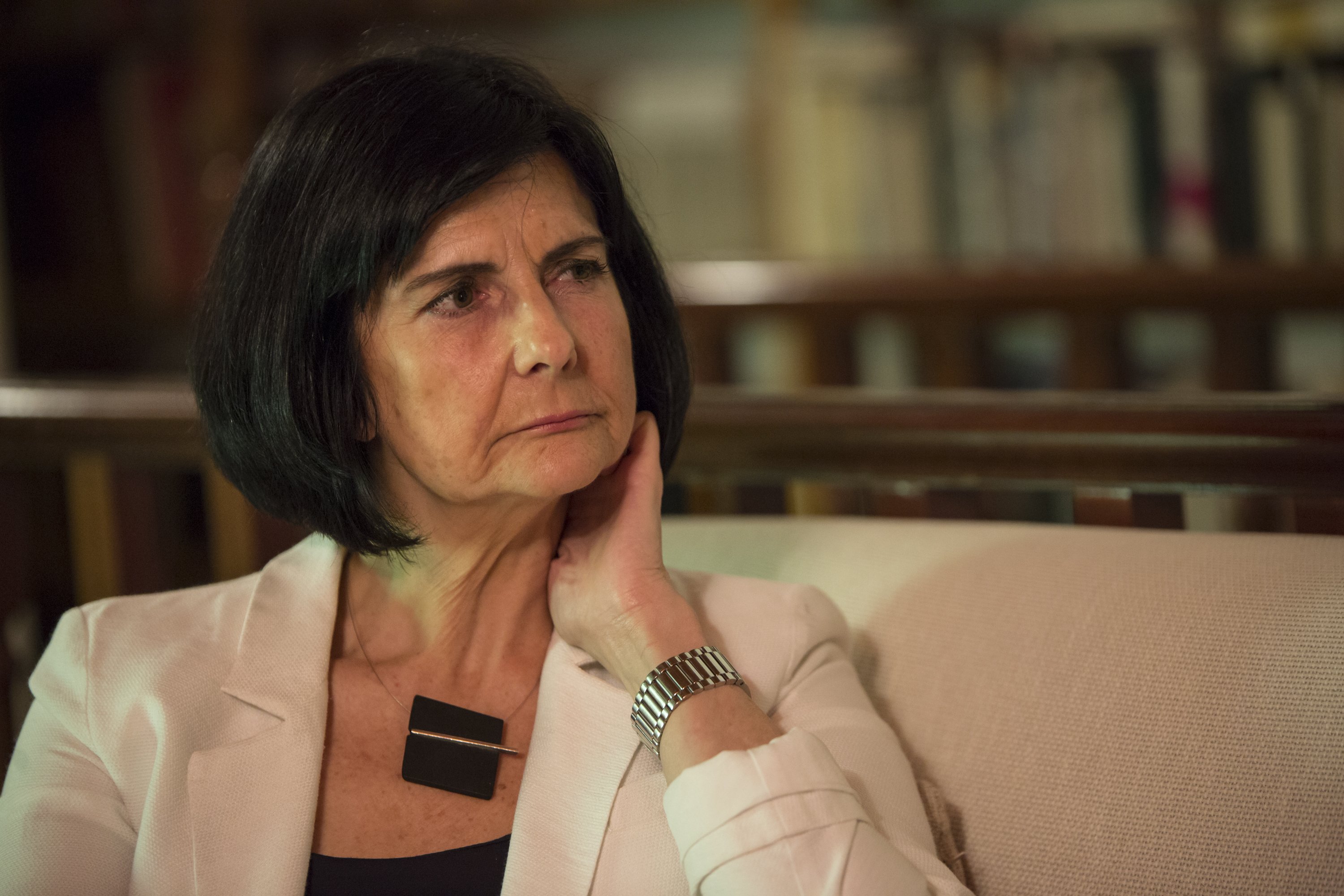Judge Montserrat Comas is spokesperson for Judges for Democracy in Catalonia, one of the leading associations of magistrates and judges in the Spanish state. Born in Barcelona in 1953, she was a member of Spain's judicial governance body, the General Council of the Judiciary, until 2008. But perhaps she is best known in Catalonia for presiding over the Palau Case, the notorious Catalan corruption case which ended this year with its two leading figures, Fèlix Millet and Jordi Montull, receiving prison sentences. And now, after paying sums in bail bonds, they are both already free.
Comas is very concerned about some instances where the Spanish Government has interfered with judicial power. She is also apprehensive about the current political instability, after the attempt to constitute a "parallel legality". The first step in a solution, she asserts, is to form a Catalan government that will allow the recovery of the institutions taken over by Madrid.
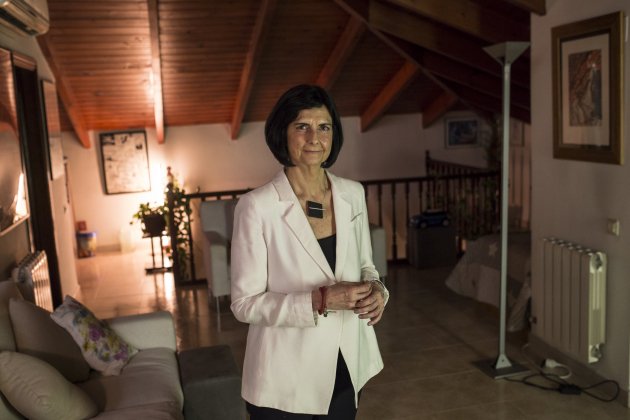
I know that you are unable to speak about a case you have judged, but just one observation: the four Catalan prisoners - Junqueras, Forn and the Jordis - have spent more time in prison than Millet and Montull did...
I can't respond to the comparison. In the first place, because the case is completely unconnected with theirs. And also because I can't speak about the case at all.
For you, are they political prisoners, the pro-independence leaders?
They are not. If you read the court rulings, they set out events that, according to initial evidence, have taken place, and certain people are thus under investigation. One thing is to disagree that these facts can constitute the offences of rebellion, sedition and others, and another thing is to believe that in the court rulings, the pre-trial prison is based on the defendants' ideas. It is not because of their ideology, it is because of the indicative facts... It seems to me to be of greater social, juridical and even political interest to speak about why one disagrees that these indicative facts may constitute offences of rebellion, which is the most severe of the crimes under investigation.
For you, then, is there no rebellion?
The crime of rebellion requires a public and violent uprising. In my knowledge of what has happened in Catalonia, I do not believe that it is present. For all that there may have been reiterated offences of disobedience, there was no violence, nor any situations of physical force, occupation of buildings, public disorder... It is true that the Supreme Court draws its interpretation from the state prosecutor, which believes that physical violence is not required, but only on an indicative basis. This now has to run its course. The investigation has not finished. And if in the end it goes to trial, then seven judges will have to decide. I would be very concerned if the Supreme Court accepted this interpretation of the crime of rebellion. We do not have any jurisprudence...
The only precedent is that of the '23-F', the attempted coup in Spain on 23rd February 1981.
Yes, and we all know the way that those coup plotters revolted. It was a classic case of a revolt, both because they used violence and because they rebelled against the form of government, kidnapping the government and members of parliament. And they were judicially found guilty, they appealed to the Supreme Court and lost. If we had to explain to law students what rebellion is, the judgement for the 23-F is very instructive; rebellion is the [armed] coup plotter Tejero entering the Spanish Congress. It is indisputable that that was a rebellion. Beyond that there is absolutely no other judgement.
On which day did a "revolt" take place here?
That would be the first question. The public prosecutor's complaint speaks about a series of facts that, over two years, when all added up, constitute a revolt. In a revolt there has to be an action. People talk about 1st October, or 27th October, of the demonstrations prior to this. All over the world it happens that peaceful demonstrations can end up with disorderly acts by a minority sector.
If we had to explain to law students what rebellion is, the judgement against Tejero is very instructive
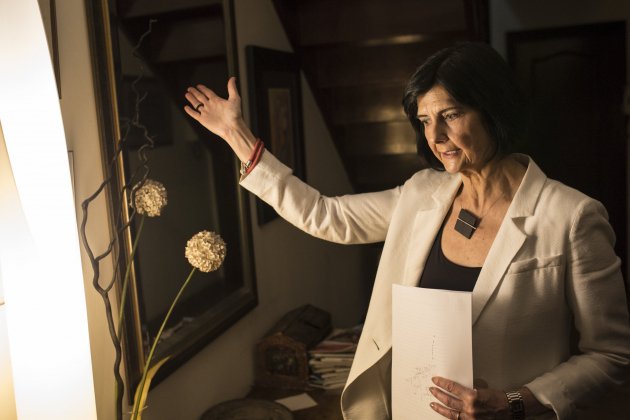
And the offence of sedition, which the Jordis are accused of?
Here there is a difference with respect to rebellion. In the definition, violence is not required; it speaks only of a tumultuous uprising aimed at several purposes: preventing the enforcement of the law, preventing compliance with judicial rulings... In this case it is true that the events happened outside the Catalan economics ministry when a judicial search was being made, authorized by a judge. The investigation will have to determine if there was anything more here than the right to demonstrate, which is a constitutional right that fortunately cannot be questioned. There are some elements which are being investigated, which are not so clear when compared to the other offence.
You say that they are not political prisoners, but to deny their liberty, judge Llarena argued that the accused have maintained their ideas...
After reading their rulings, there are two elements that concern me. The first is the part which refers to the ideology of those under investigation. Personal political options are protected in the constitution. None of the political parties of which they are part of are illegal, and the objective of independence, if it is carried out within a constitutional framework, fits into the constitution, which also protects people who are opposed to it. The second element that worries me is this concept of criminal reiteration, because it it moves far away from the concept that judges usually to insist on. It is a question that has to be individualized. Llarena makes criminal reiteration depend on what third parties do in the current political context, and not what the investigated person would do.
So where does this leave us?
The accused have presented an appeal under the Constitutional Court, which has admitted it for hearing. There will be a judgement which says if the specific motivation of these rulings is compatible with the constitution. It could also go down another route. Whatever the decision of the Constitutional Court, it could be examined by the European Court of Human Rights (ECHR) in Strasbourg. It would not be the first time that the Constitutional or Supreme Courts have not given sufficient guarantee to a person's rights. There is a system of guarantees. When you asked me if there were political prisoners, I said there weren't; we live in a state of law in which there are guarantees for everybody.
In this system of guarantees, there are some rulings that say that the defendants “maintain their ideology”.
Yes, but they are not political prisoners if we read the rulings. Because the judge bases his decision on all the facts, which are classified tentatively either as rebellion or as sedition. When it admitted the case to be heard, the Supreme Court already advised that the result of the investigation might be that the offence of rebellion might not have taken place, that the actions did not get past the stage of conspiracy to commit rebellion, but that could lead to another alternative: that we are facing a crime of sedition. We are still in an indicative phase. The photo is not yet the final photo of what will happen. There are some indicative facts. The applicability is still being argued.
It worries me that Judge Llarena refers to the ideology of the defendants. Personal political options are protected in the constitution.
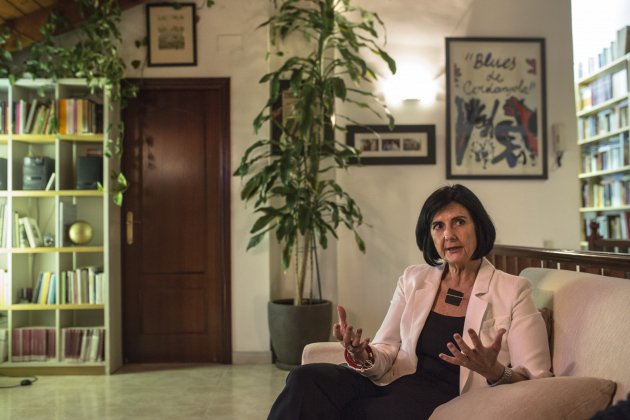
Can Jordi Sànchez be invested as Catalan president?
The candidature proposed by the speaker of the Catalan Parliament is perfectly legal. There is no legal incompatibility preventing a person in pre-trial imprisonment, who has a presumption of innocence, from standing for election in a list and being a candidate in a presidential investiture. The thing is that, in my opinion, it is not viable in practice. It is true that provisionally, now and for the time being, when he is proposed as a candidate, he is deprived of his liberty. And therefore he has some limitations. Not only in taking possession of the presidency, but in being able to practise as president, and in being effective; every day he will need to hold meetings...
With the denial of permission to attend the parliamentary session to vote on the investiture, aren't Sànchez's constitutional rights affected?
The resolution closes the possibility that Sànchez can be invested. The judge maintains his right to delegate his vote, but this is not sufficient. Llarena's decision, effectively, places a restriction with respect to the constitutional right of representation and political participation, which implies the right to hold public office. But no right has an absolute character, and in the ponderation of rights that the judge makes, the purposes of the criminal investigation and the need to maintain the pre-trial imprisonment prevail.
Llarena suggests that Juan Carlos Yoldi, who was accused of belonging to a terrorist group, did have the right to come to parliament for an investiture, but that in this case, Sànchez does not.
He says that in that earlier case judicial authorization was obtained because there was no risk of criminal reiteration and he was able to be taken to the parliament with measures of public order being applied, because ETA terrorism had [by then] disappeared. And that in the case of Sànchez, criminal reiteration could occur in the current political context, and that the act of transporting Sànchez to the parliament runs a risk of violent explosion in the streets. The reasoning is a little unfortunate. I do not share it. It would have been more understandable to say that authorizing the candidate to leave prison was not viable as a means to be able to exercise the duties of president from within the prison. A president needs to meet members of the Government daily, to sign, to consult, to negotiate with the opposition, etc.
Once again he makes the possibility of criminal reiteration depend on third parties.
Yes, but in this case he does individualize the hypothetical behaviour of Jordi Sànchez if was allowed to go free. His understanding is that Sànchez is participating in a current political project that contemplates illegally attempting to form a constituent legislature aimed at creating the Catalan republic. He considers that this political group wants to return to the independence process and to constitute republican institutions in exile directed by Puigdemont from Brussels. With regard to this last point, I believe that the latest document of political proposals for this legislature agreed on with ERC has not helped at all.
But is there a risk of “violent explosion”?
My discrepancy with the resolution consists precisely in the conclusion that all events that occurred in the road map and what could occur in the current political context could undoubtedly lead to a situation of “violent social explosion or collective confrontation as an instrument to obtain secession”. As I said, in Catalonia there has been no violence during the process, and nor do I believe that it will be produced in the future.
Judge Llarena analyzes the precedent of Yoldi, but the reasoning that he uses is a little unfortunate.
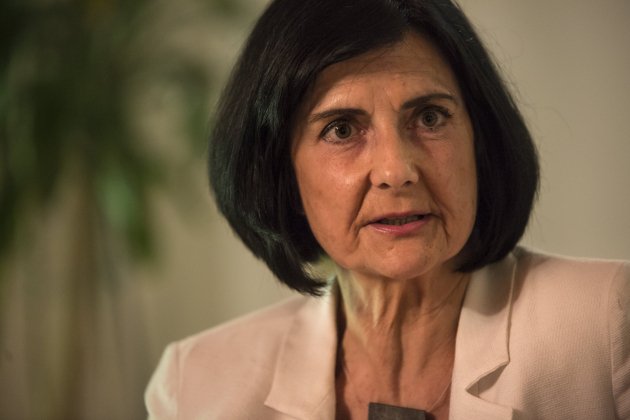
Would you understand if JxCat presented a complaint for malfeasance against Llarena, as they announced?
No. Discrepancy with the judicial decision is legitimate, also public criticism, but it is a reasoned and motivated decision. The crime of malfeasance requires that a judge makes an unfair resolution, fully knowing that he is going against legality. This is not the case. Not agreeing with a given interpretation that the judge makes does not open the door to accuse him of malfeasance.
What are the prospects for the appeals against pre-trial preventative measures in Strasbourg?
The ECHR has always required that prior to accepting a case, the internal jurisdictional paths within each state have been exhausted. It has only ever agreed to make a pronouncement without this condition of waiting for earlier resources to be resolved, in cases where lives or the physical integrity of people are in danger. Normally it has not done so in the cases of possible breaches of constitutional laws or political representation.
Before you were speaking about the interpretation that the Public Prosecutor's Office had made of rebellion. Has the public prosecutor played a distortive role?
It's true that it is the Public Prosecutor's Office which presented the complaint, on the Monday after the 27th October. It is also true that no complaints had been laid for everything that had happened before that. The unilateral declaration of independence is what made them present the complaint, which is more than 90 pages long. I read it, because I wanted to know the approach. And indeed, there is a change in the juridical approach between everything that had happened before 27th October and everything that happened afterwards. It is true that this is a decision by the Public Prosecutor's Office, but the ruling of the Supreme Court means that it is being investigated under this interpretation. I hope that, if it finally goes to trial, the judgement given does not include these different acts that took place within the crime of rebellion.
But is there political interference in the Public Prosecutor's Office?
It is true that the general public prosecutor of the state is nominated by the Spanish government. And the Public Prosecutor's Office is a hierarchical body, unlike judicial power. All public prosecutors are bound by the interpretations made by the General Public Prosecutor's Office, which depends on the Government. This structure, which is not the same in all countries, makes ones think that there could be interference more easily than in judicial power. This does not mean that public prosecutors are not bound by principles of legality and impartiality. But there is not this aspect so characteristic of judicial power, which is its independence.
What is left of the separation of powers when the Minister of Justice announces in advance the decisions that judges will make?
The statements of the Spanish justice minister, announcing a whole judicial calendar and a whole series of judicial decisions, imply clear interference. Some of these judicial opinions have already demonstrated that it was not all as he described. The minister programmed a calendar, which has just now been extended. It is not good in a system of division of powers that such a high ranking member in one branch of the state, such as the minister of justice is, interferes in jurisdictional decisions.
And when ministers and the prime minister himself call the Constitutional Court judges before they meet, to communicate their "concern"?
If these phone contacts occurred, taking into account that nobody has denied them, they constitute another inadmissible interference by the central government in the work of the Constitutional Court. Even if the court does not give way to pressure, this action undermines the public's confidence in justice. Congress should have censured those who were responsible for this.
All public prosecutors are bound by the interpretations made by the Public Prosecutor's Office, which depends on the government.
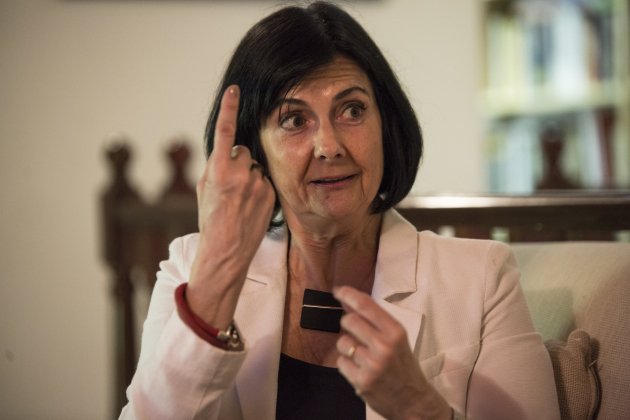
Are Puigdemont, the Catalan ministers and Anna Gabriel fugitives from justice?
They are people who at a given time decided not to appear before the examining judge. And this has consequences in the criminal and procedural area. Any person who decides not only not to appear, but to live abroad and not to turn up to testify, places themselves on the margins of the criminal process. Such people position themselves on the margin of justice and decisions are taken on them that are also foreseen in the law.
And judge Llarena sees himself as obliged in an unprecedented way to withdraw the European arrest warrant. And the Swiss authorities have already announced that they do not have any intention of extraditing Gabriel.
On the subject of Switzerland, they were statements by the minister, who was basically giving an opinion without any process having been opened.
It is even more surprising that no arrest warrant has been issued.
Perhaps he acted precipitately, because he does not know the conditions under which he can ask for a hypothetical extradition. When you ask for extradition it has to be well justified, you have to present a lot of paperwork... Regarding the decision to withdraw the European arrest warrant it is motivated by a resolution. There are no precedents. He took the step because he does not want the decision of Belgian justice to affect all of the defendants. And in any case it is a decision that does not commit him definitively. That is, the fact that at that moment he decided to withdraw the warrant does not mean that later in the investigation, or if it is considered that new evidence has been found... it doesn't mean he can't reactivate it.
The prisoners as well as those in exile have decided to take their case to the UN. What prospects do you think that has?
It is very difficult to give an opinion at this moment in the process. I wouldn't dare try and say what might happen. I respect that in their right to a defence they can also take this path, as they have done in appealing to the Constitutional Court. In Spain, even if it may seem a very long time, we are still at the stage of investigating. There has yet been any formal indictment, the trial has not opened, no judgement has been given. In any case, it has this problem. Normally, international organizations insist that they will only make rulings on cases that have already passed through the entire filter [at national level]. You can't go to the ECHR before exhausting all possible routes within Spain.
Congress should have censured those responsible for making phone calls to Constitutional Court judges.
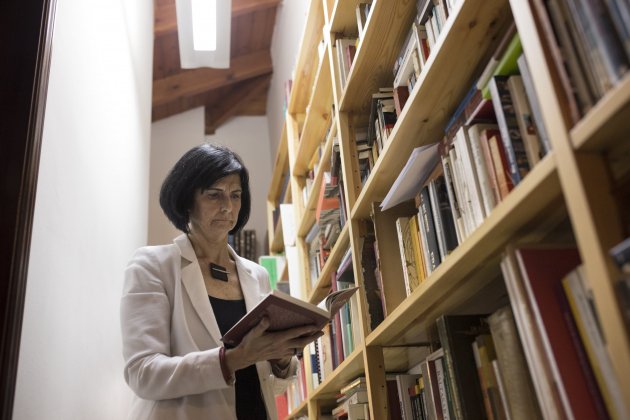
In the face of so much judicialization, how can the political conflict be solved?
This is the great problem that we have had for months and even years. This inaction or passivity from the Spanish government, confident that criminal law will solve a problem which is political, is one of the problems that we have. Knowing that there is an unsolved problem, that no dialogue has been established. Some day we will have to find a framework, which in my opinion requires an ending to this political instability in order to occur. Those who have the majority have to be able to form an effective government which will allow 155 to be withdrawn and our institutions restored.
Renouncing their political projects?
In terms of legality, there can only be one. It is not possible to have two legalities in parallel. A republic cannot be implemented in the Spanish constitutional framework. The route of dialogue must not be abandoned: to be able to finally talk about a political problem that has roots from long ago. Before this, certain steps have to be taken: ending the instability, forming a government, the sooner the better in order to restore our institutions, renouncing unilateral means. And that in this new order of democratic cooperation, frameworks for dialogue must be possible.
Has it been naive to think that the judges would do the dirty work for the politicians?
More than naive, it is a political error to think that political problems can be solved exclusively via the route of applying criminal laws, judges and public prosecutors. This does not mean that the judges do not have to intervene when it is necessary. In this route there are other offences that may have been committed, and cases have already been opened in the Catalan High Court. It is unthinkable that those cases would not go ahead. It is not that I am defending that judges should not intervene. But to think of judicialization as the only way to resolve political conflicts is a grave error.

